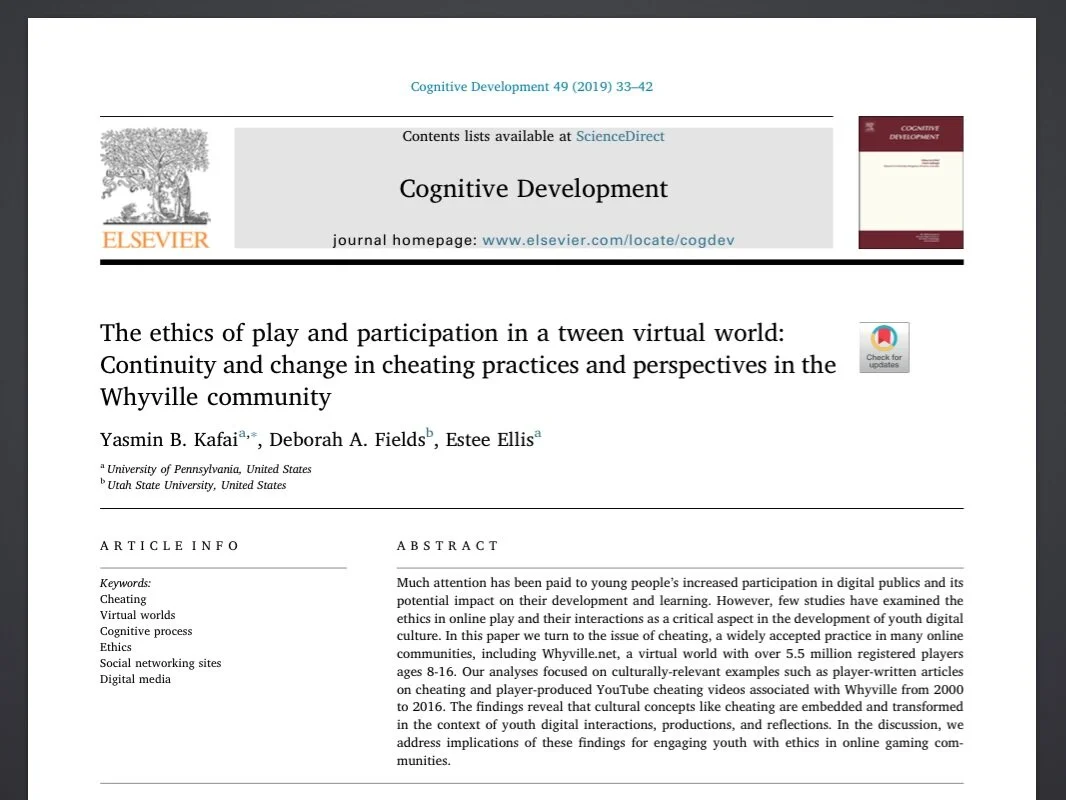Virtual Worlds and Learning
Whyville: A Virtual Pandemic
Details
Background: Whyville is an online - game based learning community with over 8 million registered users, where youth play science games, create personal avatars, and socialize in meaningful ways with opportunities for civic engagement. This makes Whyville the perfect breeding ground for a virtual epidemic to demonstrate the power of informal learning through a diverse and inclusive online community.
Project: In 2015, NSF funded a project to explore epidemiology and social attitudes toward sickness. Dragon Swooping Cough was a virtual epidemic that impacted avatar appearance, communication functionality, and virtual salaries of Whyville users. Whyville citizens were encouraged to adopt preventative measures, such as wearing masks and washing regularly. A second mutated round of the virus gave the community a chance to raise funds toward a vaccine and share preventative measures to keep each other safe. Behavioral changes tracked over the course of both infections revealed higher rates of testing and more frequent uses of preventative measures over time, showing that Whyvillians adapted to the particulars of the new disease. Additionally, interviews and observations demonstrated high levels of emotional engagement, and open forums provided valuable opportunities for informal education, as the Whyville community partnered with epidemiological experts to better understand their experiences. Users were able to learn more about contagion, preventative measures, and social impact -- reflections with real-life implications, that would not have been possible without the virtual world of Whyville.
Role/Responsibilities: Research assistant for University of Pennsylvania’s Graduate School of Education; interviewed and observed users, analyzed and reported data, produced and edited research video for the Games+Learning+Society Conference 2016 (presented as part of panel, "The great dragon swooping cough: Stories about learning designs in promoting participation and engagement with a virtual epidemic.")
Fields, D. A., Kafai, Y. B., Sun, J., Fefferman, N., Ellis, E., DeVane, B., Giang, M. T., & Wong, J. (2016). The great dragon swooping cough: Stories about learning designs in promoting participation and engagement with a virtual epidemic. GLS 12 Conference Proceedings.
Whyville: Cheating Attitudes and Practices
Details
Background: Whyville.net is a virtual world with educational games and a strong community component. Through its various modes of participation, Whyville is well situated for examination of emergent attitudes toward cheating, a salient and multifaceted aspect of gaming culture. Features such as communal acceptability, individual integrity, and instructional capacity are at the forefront of consideration for cheating practices, and Whyville users explored and expressed their attitudes toward cheating in a range of user-created content, both on Whyville and beyond.
Project: Our research examined two primary areas of study: published articles in the Whyville Times and uploaded YouTube videos. We collected and analyzed cheating-related content on these platforms and evaluated various perspectives. We found a range of positive, conflicted, and condemning attitudes in the Whyville Times, and collections of Whyville scams and walk-throughs on YouTube. Users regarded different cheating behaviors with different ethical standards, in some cases more-readily sanctioning tutorials while more typically condemning scamming other players of their virtual currencies. Individual users also demonstrated diverging cheating practices over time, with some first-person accounts of remorse and reflection from past behaviors. Through both the dynamic discourse and actions analyzed in the Wyville community, cheating attitudes and practices revealed themselves to be a relevant and important topic for consideration.
Link to the full article can be found here.
National Science Foundation NSF-1506724
Roles and Responsibilities: Research assistant for University of Pennsylvania’s Graduate School of Education; Co-author of paper published in “Cognitive Development” (Journal); compiled anthology of existing literature; analyzed user-created content in various media forms; organized findings.
